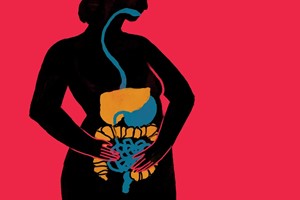Fiber is often touted as a crucial component of a healthy diet, but its significance goes beyond merely aiding digestion. This humble nutrient offers a multitude of health benefits, from improving gut health to aiding in weight management and reducing the risk of chronic diseases. Understanding the role of fiber and how to incorporate it into your diet can lead to better overall health and well-being.
What is Fiber?
Fiber is a type of carbohydrate found in plant-based foods that the body cannot digest. Unlike other carbohydrates that are broken down into sugar molecules, fiber remains intact as it passes through the digestive system. This characteristic allows fiber to provide various health benefits, particularly for digestion and heart health.
Types of Fiber
-
Soluble Fiber: This type dissolves in water to form a gel-like substance. It helps to lower blood cholesterol levels and stabilize blood sugar levels. Soluble fiber is found in foods like oats, beans, apples, and citrus fruits.
-
Insoluble Fiber: This type does not dissolve in water and helps add bulk to the stool, aiding in regular bowel movements and preventing constipation. Insoluble fiber is found in whole grains, nuts, and vegetables.
Health Benefits of Fiber
-
Digestive Health: Fiber promotes healthy digestion by adding bulk to the stool and facilitating regular bowel movements. It can help prevent constipation and reduce the risk of digestive disorders such as diverticulitis and hemorrhoids.
-
Weight Management: High-fiber foods tend to be more filling and can help control appetite by providing a sense of fullness. This can aid in weight management and prevent overeating.
-
Heart Health: Soluble fiber helps lower levels of LDL (bad) cholesterol by binding to cholesterol molecules and removing them from the body. This can reduce the risk of heart disease and stroke.
-
Blood Sugar Control: Fiber can help stabilize blood sugar levels by slowing the absorption of sugar into the bloodstream. This is particularly beneficial for individuals with diabetes or those at risk of developing the condition.
-
Colon Health: A diet high in fiber is associated with a lower risk of developing colorectal cancer. Fiber promotes the production of beneficial gut bacteria, which can contribute to a healthier colon.
How to Increase Your Fiber Intake
-
Choose Whole Grains: Opt for whole grain products like brown rice, whole wheat bread, and oatmeal instead of refined grains. Whole grains are a rich source of both soluble and insoluble fiber.
-
Eat More Fruits and Vegetables: Incorporate a variety of fruits and vegetables into your meals. The skins and peels of fruits and vegetables are particularly high in fiber.
-
Add Legumes and Nuts: Beans, lentils, chickpeas, and nuts are excellent sources of fiber. They can be added to soups, salads, and snacks for an extra fiber boost.
-
Snack on Fiber-Rich Foods: Choose fiber-rich snacks like fresh fruit, popcorn, and whole grain crackers instead of processed snacks.
-
Read Labels: When shopping, check nutrition labels to choose products that are high in fiber. Look for items with at least 3 grams of fiber per serving.
Tips for Incorporating More Fiber into Your Diet
-
Start Slowly: Increase your fiber intake gradually to give your digestive system time to adjust. Sudden changes can lead to bloating and discomfort.
-
Stay Hydrated: Drinking plenty of water is important when consuming a high-fiber diet, as fiber absorbs water and helps move it through the digestive system.
-
Mix It Up: Include a variety of fiber sources in your diet to reap the full spectrum of benefits. Different types of fiber contribute uniquely to digestive and overall health.
Conclusion
Incorporating adequate fiber into your diet is a simple yet effective way to enhance your overall health. From supporting digestive function to aiding in weight management and reducing disease risk, fiber plays a vital role in maintaining well-being. By choosing a diverse range of fiber-rich foods and making mindful dietary choices, you can enjoy the numerous benefits that this essential nutrient has to offer.











